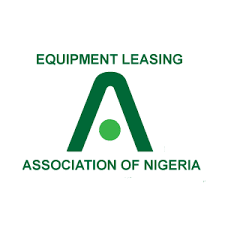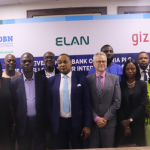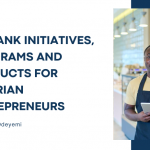Stakeholders in Nigeria’s leasing industry have highlighted its potential to address the N13tn funding shortfall faced by Micro, Small, and Medium Enterprises (MSMEs). This was the focus of the 2024 National Leasing Conference in Lagos, themed “Equipment Leasing: The Creative Financing Alternative in Today’s Reality,” organised by the Equipment Leasing Association of Nigeria (ELAN).
Leasing as a Key Financing Solution
The Chief Operating Officer of the Development Bank of Nigeria (DBN), Mr. Bonaventure Okhaimo, explained that Nigerian banks, development finance institutions, and Federal Government initiatives have collectively provided just N1.2tn to MSMEs—barely scratching the surface of the N13tn gap. He stressed the need for innovative solutions like leasing to boost access to finance.
“In fact, the challenges of MSMEs are many. But one of the key ones is access to finance. The N13tn funding gap remains daunting,” Okhaimo remarked. He noted that leasing allows MSMEs to acquire equipment that can serve as collateral, facilitating their ability to access funding.
Okhaimo also revealed that Nigeria boasts over 100 leasing firms with total outstanding leases of N4.19tn as of 2023, reflecting a 28.7% growth. He highlighted leasing’s role in promoting entrepreneurship, boosting productivity, and fostering infrastructure development, while also attracting foreign investment.
Developmental Impacts of Leasing
DBN’s support for leasing aligns with its mandate to provide wholesale financing and risk-sharing facilities to leasing companies, enabling MSMEs to acquire productive assets. The Chairperson of ELAN, Mrs. Elizabeth Ehigiamusoe, underscored the role of leasing in stimulating production, creating wealth, and addressing critical economic challenges.
“The Nigerian economy has been struggling against the backdrop of global uncertainties and domestic vulnerabilities. Leasing offers a creative alternative for tackling these challenges and supporting initiatives such as transportation, poverty eradication, and job creation,” Ehigiamusoe explained.
She added that leasing generates over $1.5tn annually in global business volume, contributing 1.5% to global GDP. In Nigeria, the leasing industry has contributed over N20.4tn to capital formation, supporting all economic sectors by enhancing capital formation and generating employment. “Leasing remains an efficient and flexible financing solution for MSMEs, empowering them to grow despite rising costs,” she noted.
The Registrar and CEO of the Equipment Leasing Registration Authority (ELRA), Mr. Donald Wokoma, projected the Nigerian financial leasing market to grow from $209.7m in 2022 to over $316.7m by 2030. He described leasing as essential for asset financing and a driver of long-term prosperity under Nigeria’s Renewed Hope Agenda.
“ELRA is committed to positioning leasing as a key driver for economic growth across Nigeria,” Wokoma affirmed, calling for collaboration among stakeholders to fully harness the benefits of leasing.
Similarly, the Managing Director of C&I Leasing urged industry players to explore specialised markets and advocate for policies that encourage leasing, including tax incentives and regulatory reforms.
Navigating Economic Challenges
Olasunkanmi Odede, Associate Director of Infrastructure and Major Project Deal Advisory at KPMG, advised businesses to anticipate market challenges and proactively mitigate risks. He stressed the importance of maintaining strong cash flow and adapting quickly to changing market conditions to remain competitive.
The Nigerian Equipment Leasing Act of 2015 remains a pivotal framework for regulating leasing activities, ensuring clarity in relationships between lessors, lessees, and third parties. Stakeholders continue to advocate for its implementation to strengthen the sector and support economic development.
As Nigeria’s economy faces persistent challenges, leasing is emerging as a creative and accessible financing alternative capable of empowering MSMEs, driving economic growth, and supporting the government’s development agenda.










